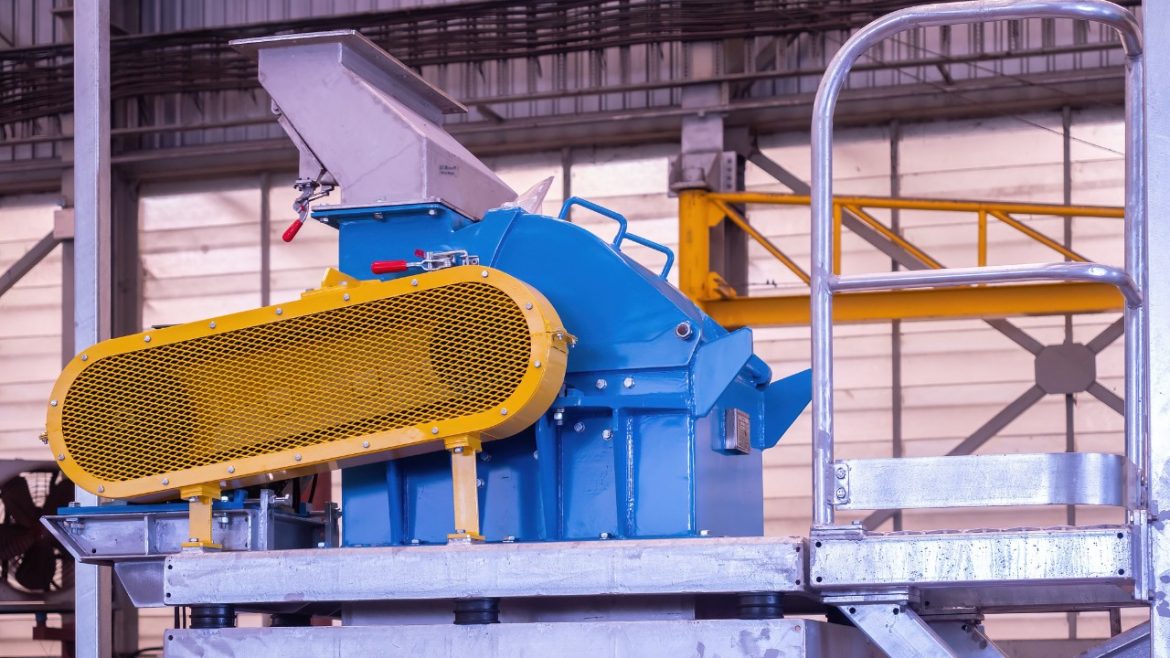Hammer crushers are mighty machines that are utilized to reduce the large pieces of hard materials such as rocks, stones, and minerals into smaller sizes. They can commonly be available in mining, construction, and agricultural industries. Each hammer crusher contains a number of hammers or teeth that hit the material against which they are very powerful and crushes it. With the passage of time, hammer crushers become stressed and wear out because of constant injuries, heat, and friction. Due to this, wear and tear are a normal feature, but when it becomes excessive, it causes an issue. Machines become slow, the repair of machines becomes common, and the cost of servicing the machines goes high. In an attempt to address such challenges, most operators and producers have resorted to carbide mulcher teeth, which have the ability to withstand heavy workloads and do not easily suffer damage as compared to their conventional steel counterparts.
Usual Wear Issues of Hammer Crushers
The most prominent component that beats the material is the hammer head. As it gets old, it loses its edge and balance. This reduces the effects of crushing, as well as it may also bring vibration in the machine. Another problem is uneven wear. Hammers do not wear out at the same rate. Certain areas of the crusher are more affected than others, and thus result in irregular surfaces. Such an imbalance may lead to mechanical issues, like rotor misalignment or vibration, and may damage the other machine parts. When the hammer is overstressed, particularly when the metal is not hard enough, cracks will develop in small shapes. As time passes, these cracks may increase and eventually lead to the breakage of the frame. The other wear problem is due to heat softening. The heat intensity produced in the process of operation may diminish the hardness of the hammer material. After being softened, the hammer becomes even more corroded. Lastly, there is corrosion, particularly in areas where moisture or chemicals exist. Corrosion causes the metal surface to be weaker and thus it is prone to chip or being worn out easily.
How These Problems Affect Crusher Performance
As wear issues accumulate, the performance of the crusher decreases. The hammers become flattened, and hence the force required to fracture materials is minimized. This implies that the machine will take more time or consume more energy to smash an equal quantity of a material. Unbalanced wear may result in an imbalance within the rotor. This causes vibration and noise as well as mechanical stress. In certain instances, it may even break off bearings and shafts, which results in costly repairs since the dimensions of the crushed material will be uneven. The crusher begins to make irregular pieces instead of making fine and uniform material. This interferes with the quality of the end product and may require additional processing. Another problem is frequent maintenance. In the case where components are easily worn out, they need to be changed frequently. This translates to increased downtime, lost productivity, and increased operating costs.
How Carbide Mulcher Teeth Help Solve Wear Problems
The carbide mulcher teeth are made to work under the same conditions that make the ordinary hammers fail. They are crafted out of a blend of hard steel and tungsten carbide tips. One of the hardest materials used in he industry tool, tungsten carbide, which has the capability of resisting wear, impact, and heat. The carbide tip offers a hard surface that can resist abrasion and impact significantly when compared to normal steel. It does not lose its hardness even under high temperatures. This helps to avoid softening and deformation, as is the case with standard steel hammers due to their hardness; carbide mulcher teeth are much longer lasting. They maintain their forms and acuity even after prolonged use. It also implies that the hammer crusher is able to work longer than would require frequent changes, because of the way the machines are designed, the forces are distributed all across the surface. This eliminates the possibility of cracks or non-uniform wear. The teeth maintain balance, which allows the smooth running of the crusher and avoids vibrations occurring. Another benefit is that the carbide tip and the steel body have a strong bond. This attachment is made by brazing in such a way that the tip does not lose its attachment even in the event of a great impact. Consequently, the teeth are reliable during their life.
Conclusion
Hammer crushers have been continuously experiencing wear challenges because of heavy impact, friction, and heat. Performance-related problems such as uneven wear, worn out teeth, dull surfaces, and heat softening are problems that a strong and durable carbide mulcher tooth can solve. Their hard tungsten carbide tips are wear-resistant, sharp and strong even in extreme conditions. Carbide mulcher teeth ensure a high degree of durability, less downtime, and provide consistent performance, which is why the machine can be used over time efficiently, more strongly, and more reliably, and the entire crushing process will be easier.
